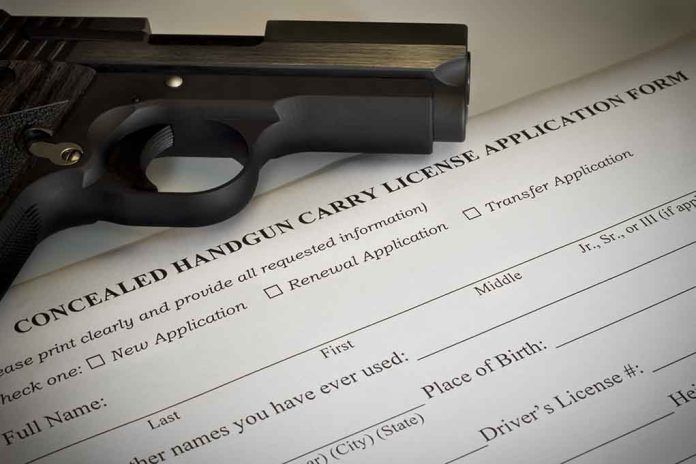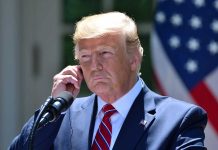
Donald Trump vows to sign national concealed carry reciprocity legislation if re-elected, igniting a fierce debate on gun rights and public safety.
At a Glance
- Trump promises to sign national concealed carry reciprocity legislation if re-elected.
- The initiative aims to create a unified national standard for concealed carry permits.
- Supporters view the policy as strengthening the Second Amendment rights across state lines.
- Critics fear undermining state-specific gun laws and potential public safety risks.
Trump’s Commitment to Concealed Carry Reciprocity
In a statement over the weekend Donald Trump announced his commitment to sign “concealed carry reciprocity” legislation if re-elected. The proposal would allow gun owners with a concealed carry permit from one state to carry their firearms across state lines. This plan seeks to harmonize concealed carry laws nationwide, similar to the acceptance of driver’s licenses across states.
This initiative stands as a significant marker of Trump’s dedication to preserving Second Amendment rights. “I will protect the right of self-defense everywhere it is under siege. And I will sign concealed carry reciprocity. Your second amendment does not end at the state line,” Trump emphasized during his announcement.
Thank you, Mr. President, for the strong statement of support for my legislation — HR 38, The Concealed Carry Reciprocity Act! https://t.co/JXNh1j8nVR
— Rep. Richard Hudson (@RepRichHudson) November 11, 2024
Support and Opposition
The National Rifle Association (NRA) and other Second Amendment advocates have long supported the notion of loosening concealed carry laws, promoting efforts like “constitutional carry,” which allow permitless carry in certain states. Trump’s consistent support for gun rights has earned him endorsements from the NRA and those who prioritize self-defense rights.
“Mr. President, each state’s driver’s license is honored across this great nation, yet a permit to carry a concealed gun—which, in contrast, is a right specifically protected in the U.S. Bill of Rights—is often not respected by other states. Will you support a national reciprocity act so that law-abiding gun owners can more easily travel with their freedom?” NRA’s First Freedom asked Trump in 2020. His answer, “Yes”.
Conversely, critics express concerns that national reciprocity could undermine stricter state gun laws. The Democratic National Committee criticized a similar initiative in 2017, arguing, “An NRA pet project, this legislation would force states with more stringent gun standards to comply with looser regulations in other states, risking our public safety.”
Trump announces federal reciprocity among all the states for people with a concealed carry permit, apparently oblivious to the 10th Amendment, which prohibits the federal government from forcing states to enforce federal law. Printz v. United States, 521 U.S. 898 (1997). https://t.co/7urQohLQPq
— Tom Mars (@TomMarsLaw) November 10, 2024
Challenges and Legislative History
The Concealed Carry Reciprocity Act passed the House of Representatives in 2017 but stalled in the Senate. Previous legislative attempts have faced significant opposition but Trump’s announcement might shift that dynamic.
Kentucky Rep. Thomas Massie’s introduction of HR9534, the National Constitutional Carry Act, was introduced in the current legislative session and underlines the momentum among some lawmakers for less restrictive carry policies. Massie stated, “No one should have to beg the government to exercise a constitutionally protected right anywhere in the country.” While the current makeup of Congress makes his proposal unlikely to pass, with the Republicans likely to control both chambers of Congress and the White House, it may not be long before the bill is signed into law.









